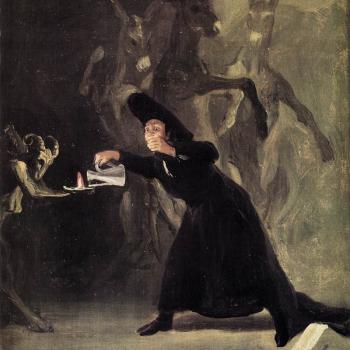“Dubious and antiquated” is exactly right, but a technicality would due; in fact, such technicalities stood behind much of the recent tensions. Most aggravating of all Charles’ moneymaking strategies (and, to be fair, he had good reason to raise taxes on the woefully undertaxed nobility and gentry) was “ship money.” Once upon a time, English kings had required all coastal towns to contribute ships for the defense of the island. If they could not supply ships, then money to build ships would do. Charles revived this practice in spite of the lack of any clear threat, requiring money (period) from inland towns. When taken to court, he narrowly won. So, you see, this was all perfectly legal.
“But he’s a king! You said this was a quality of liberalism!’ That’s true and while Charles’ bid for power is itself wrapped up in the larger liberal project (lest we forget that absolutism and Enlightenment often went hand in hand in Europe), a better example is needed. Let’s fat forward t the end of the civil wars, when Oliver Cromwell ruled as Lord Protector of the commonwealth. This new protectorate system included a legislative branch, the first of which is now known as the First Protectorate Parliament. Cromwell had an issue: he felt deeply protective of the country’s new (and first) written constitution. At the same time, the parliament (for reasons that needn’t concern us at the moment) proved unamenable to Cromwell; they refused to pass any of the 82 ordinances he had drawn up, even as they tried to rip control of the military from him and his allies, taking it for themselves. The new constitution clearly stated that no parliament could be dissolved if it had convened for less than five months (a clear jab at Charles and his strategy from the decade prior). In short, he needed the parliament gone but couldn’t do so without cutting out his own beloved order out from underneath him.
This is where rule by technicality comes in. The constitution said five months. This meant, of course, five lunar months, not solar ones. These lunar months had already elapsed and so the parliament could be dissolved. No problemo—now Cromwell could move forward, anchoring England’s liberal tradition in quibbles over what the word “month” really means.
How is any of this different from the modern GOP’s “war on norms”? Their march through the courts (via the Federalist Society) has made their legal strategy, well, legal. In fact, it seems that quite often the use of interpretative frameworks that otherwise seem prima facie unhinged is an effective path, one that allows the preservation of norms and laws (as liberalism wishes to) even as these can be bent to the will of one party. Liberalism, as the Framers and their French compatriots (like the Marquis de Lafayette) would tell us, is about the liberty of property and its disposition. This requires respect for the law; all change is legitimated expressly by the legal code. It is the logic of Plato’s Crito taken to its extreme:
[W]hether we speak the truth about the following: that it is not just for you to try to do to us what you’re now attempting. For we gave birth to you, brought you up, educated you, and gave you and all the other citizens everything we could that’s good, and yet even so we pronounce that we have given the power to any Athenian who wishes, when he has been admitted as an adult and sees the affairs of the city and us the laws and is not pleased with us, to take his possessions and leave for wherever he wants. And if any among you wants to live in a colony because we and the city do not satisfy him, or if he wants to go somewhere else and live as a foreigner, none of us laws stands in the way or forbids him from taking his possessions with him and leaving for wherever he wants. But whoever remains with us, having observed how we decide lawsuits and take care of other civic matters, we claim that this man by his action has now made an agreement with us to do what we command him to do. (Crito, 51d-e)
Should it be any surprise, then, that lawyers form the political class in the US in a way not terribly common throughout the rest of history? He who controls the interpretation of the law controls the polity—it’s turtles all the way down.
So, the next time someone tells you the GOP is destroying liberalism, respond to them the way you would if Dinesh D’Souza tells you that liberals are the real fascists—tell them no way. Understanding this is the first step for everyone—socialists, liberation theologians, post-liberals, and integralists alike—in imagining a better world.












